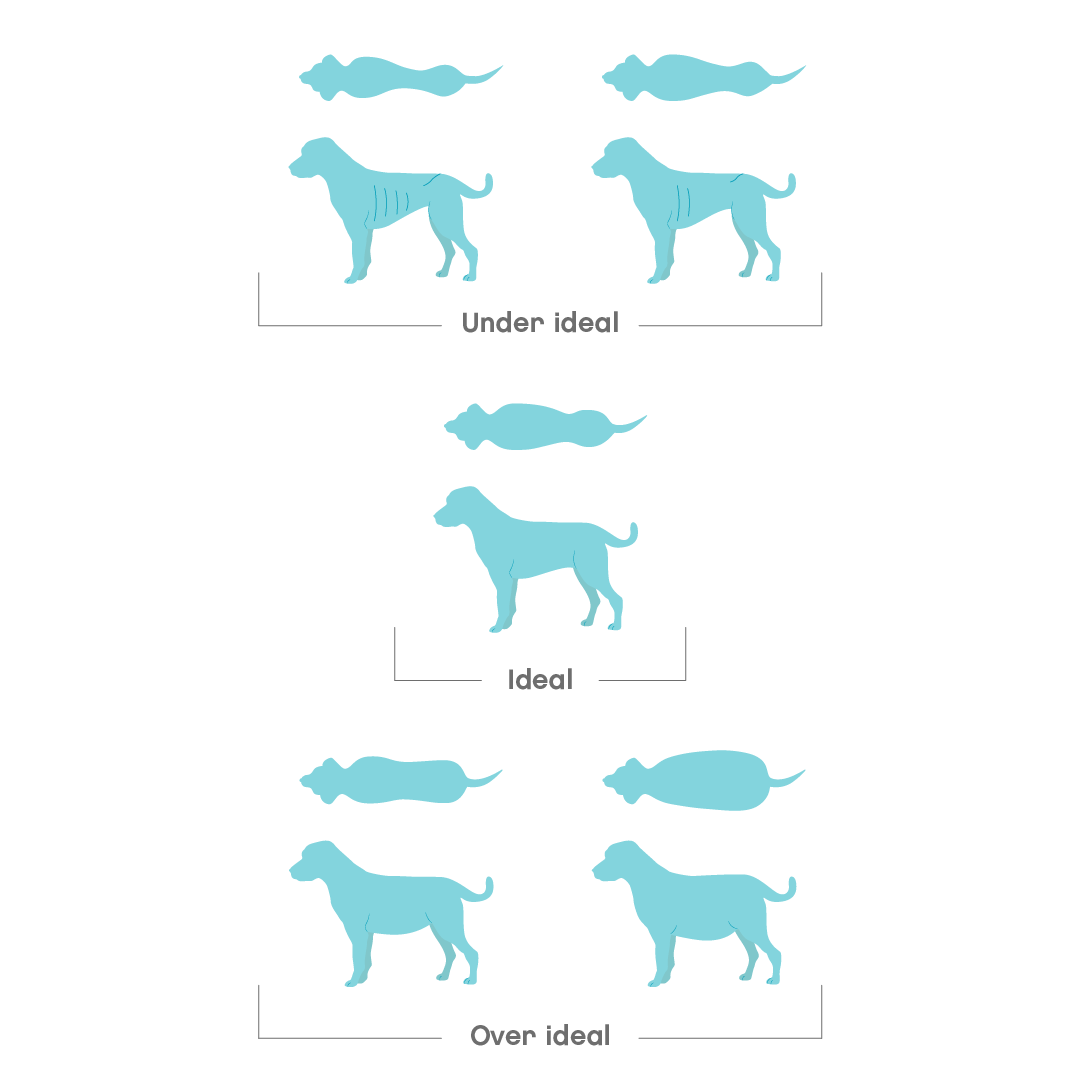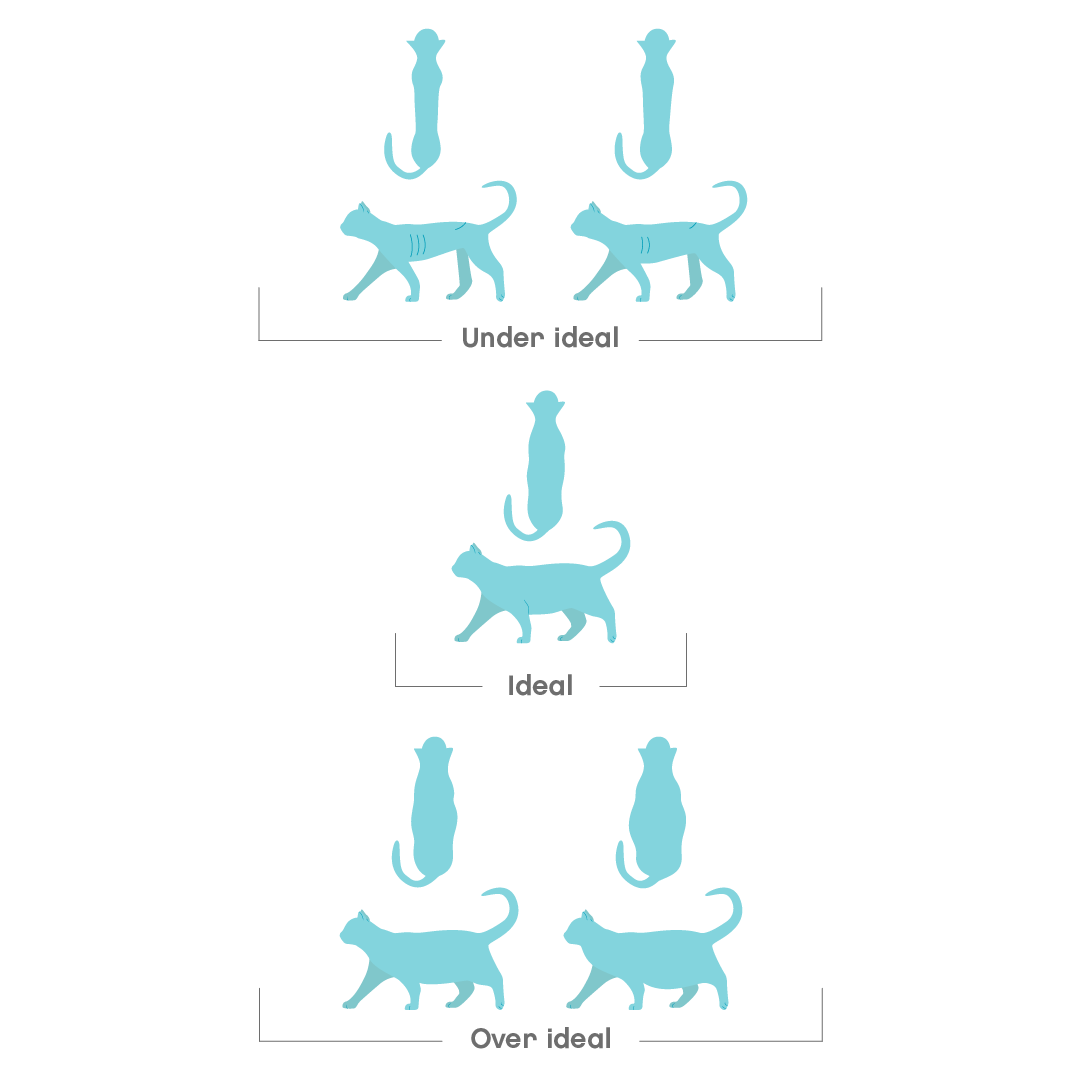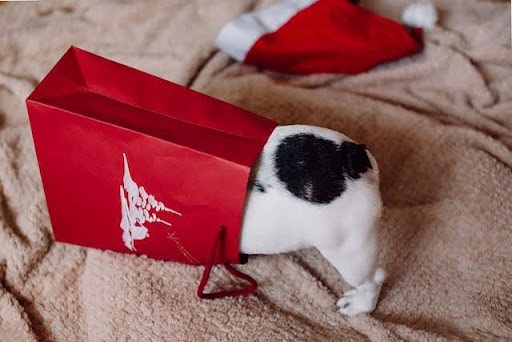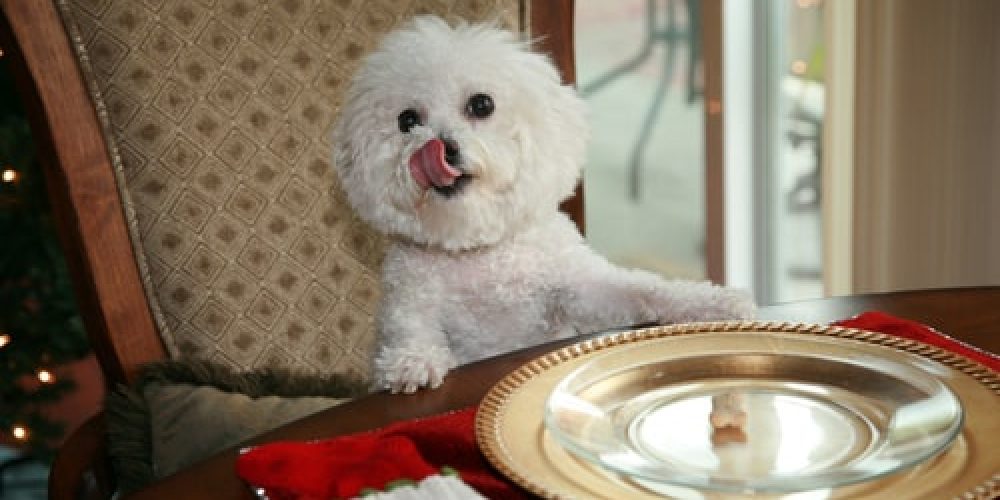Christmas is a time for sharing. Everyone agrees. (Except, of course, when it comes to the washing up afterwards!)
Even old Ebeneezer Scrooge came around to the idea in the end. And when it comes to Christmas Day celebrations, it’s good to share something special. Something seasonal maybe – like Christmas crackers, candles, a favourite festive tablecloth. But whatever the decorative accompaniments, Christmas dinner is the star of the show. And it’s only natural to want our furry family members to share the festive food-fest as well.
But with all those warnings about food hazards to pets at Christmas, including chocolate, mince pies and Christmas cake (raisins and sultanas), onions, nuts, and alcohol, what’s left for a pet-friendly Christmas dinner?
Here’s Joii’s guide to some safe options for Christmas dinner
- Turkey and chicken: unless your pet has a poultry allergy, white turkey meat is a tasty source of high-quality protein, which is also low in fat. But avoid turkey basted in garlic and herbs, or with lots of gravy. And watch out for bones.
- Boneless salmon: a pawsome Christmas treat. A small piece of poached or grilled salmon is a low-allergen and healthy option for cats or dogs of any age.
- Parsnips, and carrots: raw, plain roasted or boiled.
- Boiled swede or new potatoes, or mashed without butter.
- Sweet potatoes: good source of fibre and prebiotics.
- Brussels sprouts: OK, not the definition of a ‘Christmas treat’ for many of us humans, but a healthy treat for our more discerning furry family. But no extra butter, nutmeg, bacon, cream, chestnuts or any of the other human additions to the humble sprout!
- Peas and runner beans
- Drained unsweetened cranberries: a nice accompaniment to turkey, but just a small amount smeared on top.
And for dessert?
- Apples
- Bananas
- Blueberries
The secret to Christmas treats, without upset tummies!
1. Everything in moderation: overeating, especially overeating unfamiliar food, is a sure way to an upset tummy (for animals and humans both!).
- Treats should make up no more than 10% of your pets daily calorie intake.
- A 10kg Westie needs about 500 kilocalories per day to maintain a healthy body condition (WSAVA expert guidelines). That would be around 40 grams of white meat turkey not including the skin. This means 1 good-sized slice of breast meat per day.
- A 5kg cat needs around 300 kilocalories per day. Which means 30 kilocalories as a treat. Or 15 grams of poached or grilled salmon fillet.
Body Condition Scoring (BCS) in dogs
Body Condition Score (BCS) is a scale that gives a practical evaluation of the fat coverage of your dogs body. By checking how easy or not it is to feel certain bony areas of the body, a score is then produced. There are several scales, from 1 to 5 or 1 to 9. The ideal body condition lies in the middle, so either 3/5 or 5/9.
The body areas normally checked for fat coverage are:
1. ribs and spine
2. hips and shoulders
3. waist

Here are a few tips on how to do it.
With your pet in a standing position:
- Place your hands on the rib cage and gently feel for each rib, without pressing too hard
- Feel the waist and look from the top and the side (if you have a very furry breed, it may be harder to assess)
- Feel the spine, which runs down the middle of the back
- Feel the top of the hips and shoulders
Body Condition Scoring (BCS) in cats
Body Condition Score (BCS) is a scale that gives a practical evaluation of the fat coverage of your cat’s body. By checking how easy or not it is to feel certain bony areas of the body, a score is then produced. There are several scales, from 1 to 5 or 1 to 9. The ideal body condition lies in the middle, so either 3/5 or 5/9.
The body areas normally checked for fat coverage are:
1. ribs and spine
2. hips and shoulders
3. waist

Here are a few tips on how to do it.
With your pet in a standing position:
- Place your hands on the rib cage and gently feel for each rib, without pressing too hard
- Feel the waist and look from the top and the side (if you have a very furry breed, it may be harder to assess)
- Feel the spine, which runs down the middle of the back
- Feel the top of the hips and shoulders
2. Avoid making sudden changes to your pet’s diet. A full Christmas dinner sounds good. But as heard in day 3 of our Christmas Guide, your cat or dog’s tummy can’t cope with a sudden change from routine.
And how about some home-made Christmas treats for the whole furry family?
Ingredients to add to your Christmas shopping lists:
For dogs:
- Bananas
- Wholemeal flour
- Xylitol-free peanut butter
- Pumpkin tinned (not sweetened) or fresh, sweet potato
- Ginger
- Bananas
- Honey

And hop online to check out some safe and healthy treats your furry friends will love. They’re bound to want to join in the fun.
There’s some tasty examples on the Kennel Club website this Christmas:
- Christmas tree treats
- Snowball pupcakes
- Festive gingerbread owners
- Christmas candy canes
- Wintery berry bones
For cats:
- Tinned or fresh fish
- Chicken
- Wholemeal flour
- Spinach
- Egg
- Cornmeal
- Cheese
- Unsweetened cranberries
- Oats
https://www.hillspet.co.uk/cat-care/nutrition-feeding/healthy-homemade-cat-treats
With all these ideas out there, once we know what’s safe and what to avoid, Christmas dinner and all the Christmas treats can be shared with all the family – two, four or however many – legged!
Now, about that Christmas washing-up rota…
Wishing you and your furry family a Happy and Healthy Christmas from all your pet family friends at Joii!
Coming soon…on the eleventh day of Christmas
Christmas and new pets











